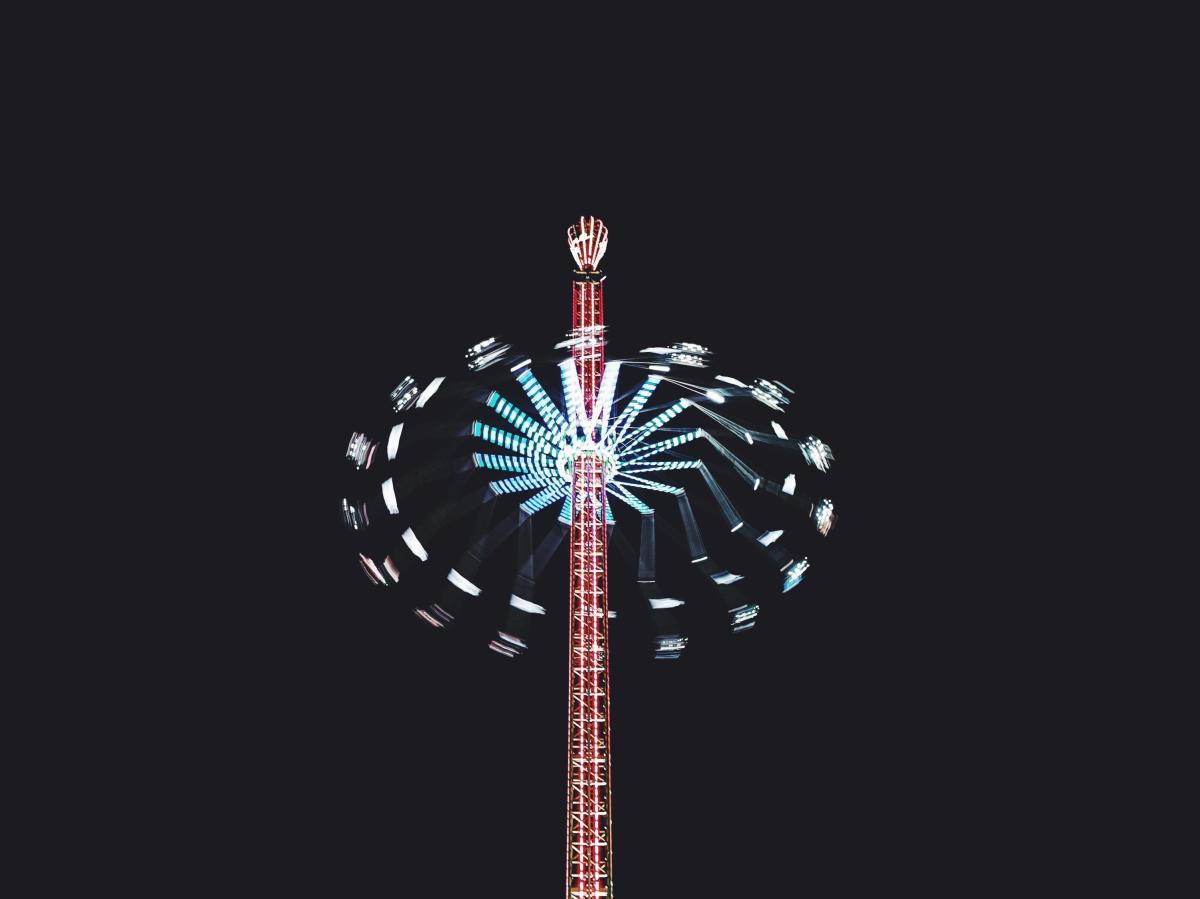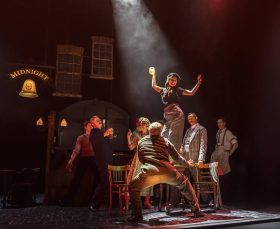Arts festivals around Australia and the world are often dependent on large numbers of contract workers. From ticketing and front of house to bar staff and office admin, through to technical and venue support, such roles are often filled by staff on short-term contracts. Many of these workers line up multiple festival contracts in a row, often resulting in exhaustion and stress – otherwise known as festival fatigue.
Artistic Director and CEO of the Emerging Writers’ Festival, Izzy Roberts-Orr explained, ‘Some degree of festival fatigue is pretty much inevitable. The festival model inherently requires you to put in a big burst of energy over the festival dates to make it all happen, but that also means you can plan for it in advance when you know it’s coming.’
Here, we speak with festival staff about the challenges of the industry and ways to cope with festival fatigue.
Overworking
Operations Manager and Coordination Professional George Barry said, ‘The most challenging part of short-term contracts is knowing that the event season in Australia runs from September through til roughly May; then the quiet season hits, where work is spotted and less frequent. Due to this nature, a lot of event managers take on unruly amounts of workloads to make up for the quiet period. My longest stint has been 52 days with no days off.’
Even within a festival contract, staff work extremely long hours in tiring roles – often on their feet and dealing with artists and the public. It is unsurprising that many contract workers experience fatigue when the working conditions at some of the world’s biggest festivals are at times non-existent – many Edinburgh Fringe venues have a long history of overworking and underpaying contract staff.
Events professionals stress the need to rest between contracts to help counteract the affects of intense festival work. Events producer Jaymee Alsop says, ‘Life work balance can be a challenge; I myself can be a workaholic when I’m on a festival. I try to make sure I take a break in-between contracts to rebalance.’
Instability and change
Festival staff are constantly relocating for roles and starting and finishing multiple new jobs every year. Psychologist Amy Stubbs said, ‘Even good things in our life can bring stress on our system, and moving and experiencing work changes are two of the top most stressful things you can go through in life.’
Stubbs explained that these stresses can present themselves in many different ways such as colds and flus, increased physical tension, increased symptoms of anxiety, sleeping difficulties, increased irritability and teariness, and that these stress reactions ‘build up over time’.
Adding to this stress, festival staff are constantly hunting for their next pay cheque, while short-term contracts and casual roles rarely include benefits such as sick leave and holiday pay. This constant job-hunting and instability can cause stress and exhaustion and is likely a key contributor to the demographic of festival workers. As sound engineer and stage manager Jasmin Cummings noted, ‘Generally everyone I work with is probably under 35, which also shows it’s a young person’s industry.’ The nature of festival work and the exhaustion it causes also makes it difficult to sustain long-term.
Relationship challenges and lack of support
Short-term festival staff don’t have the opportunity to have morning tea with their colleagues day in and day out – their personal and working relationships are often strong but short-lived. Cummings said: ‘For me the hardest thing is having intense short burst relationships. Strangers that after a week of working long hours become great friends and yet you know that there is a time limit on the bubble around you.’
Not only are festival workers away from friends and family for long periods of time; constantly relocating makes it difficult to find ongoing and appropriate mental health support. Festival staff have to look out for the signs of fatigue and mental illness and get help when needed, Stubbs said. ‘Travel fatigue takes a long time to overcome if you leave it too late to seek treatment.’
One option for festival workers is to find a psychologist who offers Skype sessions, said Stubbs, who works with clients via Skype. ‘The creation of that familiar space that is unchanging, as your physical landscape changes, provides a sense of grounding and connection. To know that you have that regular check in with someone who you can be real with and honest about how you’re really going, can really help.’
What can be done?
It doesn’t seem to matter how many smoothies they drink or naps they squeeze in, events staff are exhausted. Every events professional I spoke to had their own stories.
It’s an ‘endemic problem,’ said Eddie FitzPatrick who has been working in festivals and events for 12 years – so what needs to change?
Barry said that while he loves working in festivals and events, ‘there is one thing gravely wrong with this industry – lack of unionisation. This is something that needs to change in the next 10 years, or I feel the workforce will be a dying one. Right pay for the right work, overtime, public holiday rates, ample time off between shifts, etc.’
Fair working conditions and support for staff are key to minimising the effects of festival fatigue. Employers and managers can take steps to minimise their staff’s fatigue, as Izzy Roberts-Orr explained: ‘Checking in is really vital, because we can always shift things on the ground if needed. If folks are feeling good and you’re all listening to and supporting each other, it’s a hell of a lot easier to pull it off without burning out. We’re really organised as well – so much forethought and planning goes in beforehand, it minimises the amount of work that has to be done as the festival is unrolling.’
Lee Cohen, Front of House manager at Gluttony at Adelaide Fringe, gives her staff the opportunity to debrief by embracing an ‘open door policy’.
‘Whether it’s directly related to their work or just their festival experience or how they’re feeling in general, having a space to debrief in the intense festival business can be a good way of relieving or at least being aware of the stress team members are experiencing,’ she said.
It’s important that festival workers take care of themselves but equally important that they are supported and valued within their workplaces. Working in festivals is tough but rewarding work – long hours and instability are met with opportunities to travel and watch some of the world’s best artists. As freelance event manager Amie Young said, ‘It’s a constant hustle but it’s so worth it; I would never get to have these experiences in a 9–5.’





